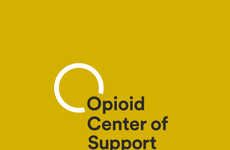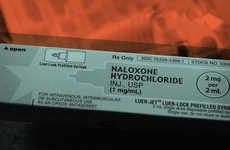



Technology is used to rehabilitate those impacted by the opioid crisis
Trend - In an effort to fight the opioid crisis, tech is being used to promote recovery and safety for victims. From the virtual reality to app-based sober coaches, these speak to the over-arching patient need for tools that leverage technology as the catalyst for recovery from forms of addiction.
Insight - Consumers have seen technology provide support and convenience in various aspects of their lives from health tracking to seamless homes. However, with global and societal issues more visible than ever on social media and online channels, consumers are opening up to the idea of technology as a solution to larger-scale issues. Furthermore, they are expecting tech companies to use their resources and knowledge to aid in the betterment -- not just entertainment -- of society and its members.
Insight - Consumers have seen technology provide support and convenience in various aspects of their lives from health tracking to seamless homes. However, with global and societal issues more visible than ever on social media and online channels, consumers are opening up to the idea of technology as a solution to larger-scale issues. Furthermore, they are expecting tech companies to use their resources and knowledge to aid in the betterment -- not just entertainment -- of society and its members.
Workshop Question - How could technology serve as the catalyst for personal betterment or development in your world?
Trend Themes
1. Tech Solutions for Opioid Crisis - Technology is being used to provide support and safety for victims of opioid crisis, including virtual reality and app-based sober coaches.
2. Gamified Addiction Control - Apps like ResQ are using gamified experiences and scientific approaches to help opioid addiction patients control their impulses and avoid relapse.
3. Opioid Caregiver Support Platforms - Online resources like the Opioid Center of Support provide information and support for caregivers and friends of opioid addicts, as part of a greater focus on the role that community plays in recovery.
Industry Implications
1. Healthcare Technology - Leveraging technology to improve rehabilitation and recovery services for those suffering from addiction.
2. Mobile Application Development - Developing apps that assist and support people who have opioid addiction, and those who work to help and support them.
3. Wearable Tech - Creating wearable technology that can detect and prevent opioid overdose, such as the 'HopeBand' developed by Carnegie Mellon students.



































